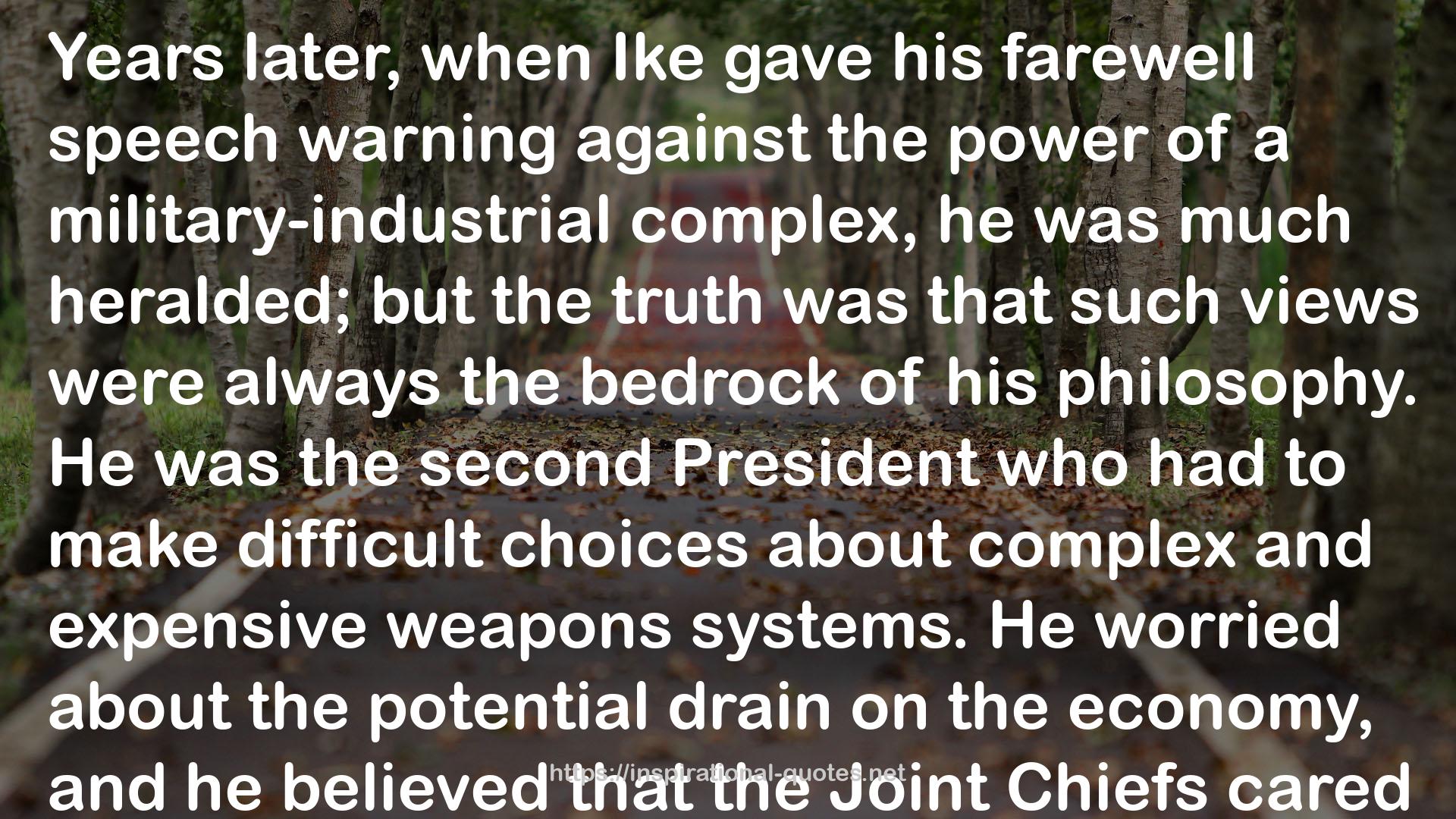" Years later, when Ike gave his farewell speech warning against the power of a military-industrial complex, he was much heralded; but the truth was that such views were always the bedrock of his philosophy. He was the second President who had to make difficult choices about complex and expensive weapons systems. He worried about the potential drain on the economy, and he believed that the Joint Chiefs cared little or nothing about the dangers of inflation. He spoke often in private about the danger of spending so much on weaponry and defense and in the process destroying the economy and thus weakening the country these weapons were going to protect. The federal budget, he liked to say, had risen from $4 billion a year in 1932 to $85.5 billion in 1952—with some 57 percent of that increase going to the Pentagon. “This country,” he once noted, “can choke itself to death piling up expenditures just as surely as it can defeat itself by not spending enough for protection.” Defense spending, he believed quite passionately, was dead weight; it was inflationary and subtracted from the nation’s vitality rather than added to it. "
― David Halberstam , The Fifties
